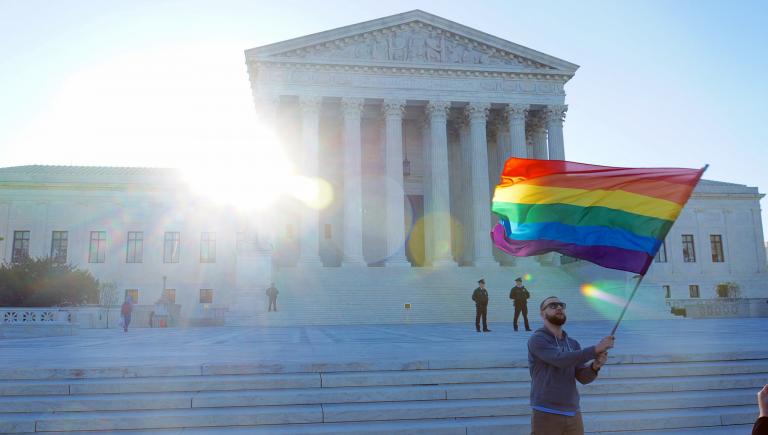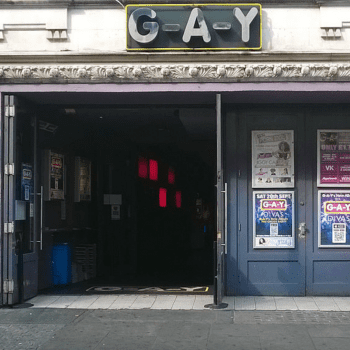
Today, the Supreme Court ruled enough is enough in their bold and unambiguous decision against intolerance.
Jack Phillips, as you probably have heard, is the owner of Masterpiece Cakeshop who didn’t want to use his God-given talent to make wedding cakes for same sex wedding ceremonies. As a Christian, these ceremonies contradicted his deeply held religious beliefs.
Colorado charged him with unlawfully discriminating against a gay couple. By a 7–2 margin, the Supreme Court ruled that Colorado violated Phillips’s right to free exercise of religion when it claimed he violated their state public-accommodation law. Justice Kennedy condemned anti-religious comments made by state commissioners during the hearings before the Colorado Civil Rights Commission. He wrote:
To describe a man’s faith as “one of the most despicable pieces of rhetoric that people can use” is to disparage his religion in at least two distinct ways: by describing it as despicable, and also by characterizing it as merely rhetorical — something insubstantial and even insincere. . . . This sentiment is inappropriate for a Commission charged with the solemn responsibility of fair and neutral enforcement of Colorado’s antidiscrimination law — a law that protects discrimination on the basis of religion as well as sexual orientation.
Over at National Review, Constitutional lawyer David French explains why this is a big deal:
Kennedy could have stopped his opinion right there. As he notes, there was no objection to those comments from other commissioners, and they weren’t disavowed at any time during the proceedings. One of the actual adjudicators of the case was expressing outright hostility to Phillips’s religious expression, a situation different from and more egregious than lawmakers’ expressing hostility to religious faith when passing legislation.
Had Kennedy stopped his opinion at that point, Phillips’s victory would have been important, but profoundly limited. The obvious response would be for the commissioners to reconsider the case, cleanse their rhetoric of outright hostility, deliver the same result on a cleaner record, and put the more difficult free-speech claim right back in the Court’s lap. But Kennedy didn’t stop. He found a separate ground for concluding that Colorado was motivated by anti-religious animus, and that separate ground will make it difficult for states to take aim at “offensive” religious exercise, even when it occurs in a commercial context.
Apparently, the state of Colorado had previously allowed bakers to refuse to create cakes with so-called anti-gay messages. Here’s Kennedy again:
On at least three other occasions the Civil Rights Division considered the refusal of bakers to create cakes with images that conveyed disapproval of same-sex marriage, along with religious text. Each time, the Division found that the baker acted lawfully in refusing service. It made these determinations because, in the words of the Division, the requested cake included “wording and images [the baker] deemed derogatory.”
Kennedy continued:
A principled rationale for the difference in treatment of these two instances cannot be based on the government’s own assessment of offensiveness. Just as “no official, high or petty, can prescribe what shall be orthodox in politics, nationalism, religion, or other matters of opinion,” West Virginia Bd. of Ed. v. Barnette, 319 U. S. 624, 642 (1943), it is not, as the Court has repeatedly held, the role of the State or its officials to prescribe what shall be offensive. . . . The Colorado court’s attempt to account for the difference in treatment elevates one view of what is offensive over another and itself sends a signal of official disapproval of Phillips’ religious beliefs.
French sums it up nicely. “Let’s put it differently. All bakers — regardless of religion — have the same rights and obligations. At the same time, gay and religious customers enjoy equal rights under state public-accommodation statutes. Any ruling the commission imposes will have to apply on the same basis to different litigants, regardless of faith and regardless of the subjective ‘offensiveness’ of the message. This is a severe blow to the state.”
Congratulations to Michael Farris and my friends at Alliance Defending Freedom.
Well done.
Image Credit: Ted Eytan on Flickr
Hat Tip: National Review










